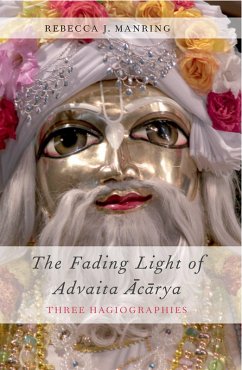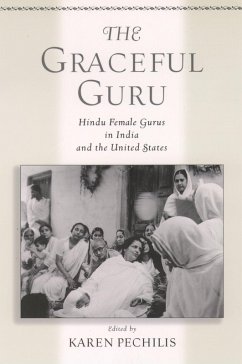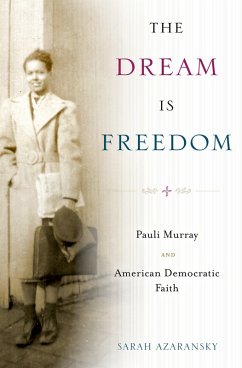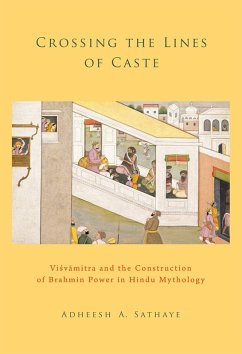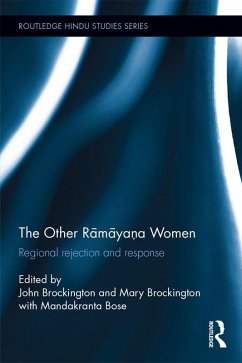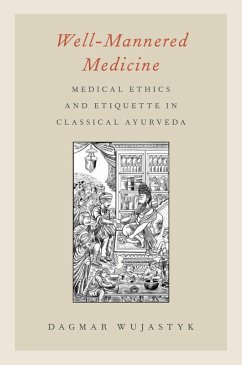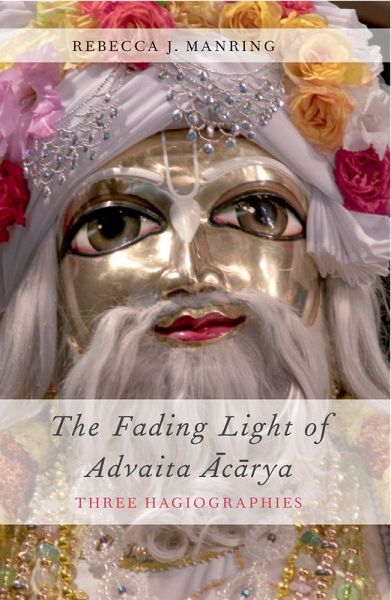
The Fading Light of Advaita Acarya (eBook, PDF)
Three Hagiographies

PAYBACK Punkte
3 °P sammeln!
Rebecca J. Manring offers an illuminating study and translation of three hagiographies of Advaita Acarya, a crucial figure in the early years of the devotional Vaisnavism which originated in Bengal in the fifteenth century. Advaita Acarya was about fifty years older than the movement's putative founder, Caitanya, and is believed to have caused Caitanya's advent by ceaselessly storming heaven, calling for the divine presence to come to earth. Advaita was a scholar and highly respected pillar of society, whose status lent respectability and credibility to the new movement. A significant body of ...
Rebecca J. Manring offers an illuminating study and translation of three hagiographies of Advaita Acarya, a crucial figure in the early years of the devotional Vaisnavism which originated in Bengal in the fifteenth century. Advaita Acarya was about fifty years older than the movement's putative founder, Caitanya, and is believed to have caused Caitanya's advent by ceaselessly storming heaven, calling for the divine presence to come to earth. Advaita was a scholar and highly respected pillar of society, whose status lent respectability and credibility to the new movement. A significant body of hagiographical and related literature about Advaita Acarya has developed since his death, some as late as the early twentieth century. The three hagiographic texts included in The Fading Light of Advaita Acarya examine the years of Advaita's life that did not overlap with Caitanya's lifetime, and each paints a different picture of its protagonist. Each composition clearly advocates the view that Advaita was himself divine in some way, and a few go so far as to suggest that Advaita reflected even greater divinity than Caitanya, through miraculous stories that can be found nowhere else in Bengali Vaisnava literature. Manring provides a detailed introduction to these texts, as well as remarkably faithful translations of Haricarana Dasa's Advaita Mangala, Laudiya Krsnadasa's Balya-lila-sutra, and Isana Nagara's Advaita Prakasa.
Dieser Download kann aus rechtlichen Gründen nur mit Rechnungsadresse in A, B, BG, CY, CZ, D, DK, EW, E, FIN, F, GR, HR, H, IRL, I, LT, L, LR, M, NL, PL, P, R, S, SLO, SK ausgeliefert werden.




